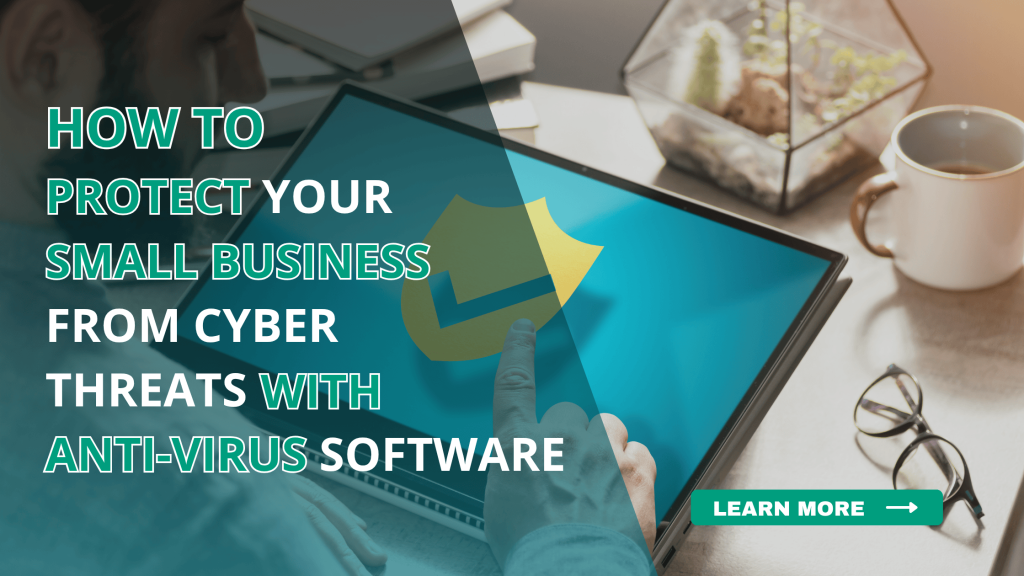If you run a small business, cyber security might not always be at the top of your to-do list. But with increasing threats online, one thing is certain: anti-virus protection is no longer optional. It is a core part of keeping your business, data, and reputation safe from harm.
Whether you have heard the term many times or you are just starting to explore your options, this guide explains exactly what anti-virus software does, why it is essential for small businesses, and how to choose the right solution for your needs.
What Is Anti-Virus Software?
Anti-virus software is designed to detect, block, and remove malicious software, commonly known as malware, from your computers and devices. This includes viruses, spyware, ransomware, trojans, and other harmful programmes that could steal data or disrupt operations.
Think of it as hiring a digital security guard who never sleeps, constantly monitors your systems, and steps in the moment something suspicious appears.
How It Works
Here is how modern anti-virus software helps protect your business:
- Threat Detection: It scans your files, downloads, and attachments against an up-to-date list of known threats, often called a virus signature database.
- Real-Time Monitoring: Instead of running scans only when prompted, most programmes now run quietly in the background, flagging suspicious activity as it happens.
- Quarantine and Removal: If a threat is found, the software isolates it immediately and either removes it or provides guidance on how to resolve the issue safely.
- Performance Checks: Some premium tools also monitor the health of your system, watching for odd behaviour such as unknown apps running or abnormal network traffic that may signal a threat even if it has not yet been identified.
Why It Is Critical for Small Businesses
Many small business owners believe they are too small to be targeted. Unfortunately, that is exactly what makes them appealing to cybercriminals. Here is why skipping anti-virus protection is not worth the risk:
1. Safeguards Sensitive Information
From payroll records to customer emails, your systems likely hold data that hackers would love to get their hands on. Anti-virus software helps prevent breaches that could lead to financial loss or legal trouble.
2. Prevents Costly Downtime
A virus does not just sit in your system. It can crash machines, delete files, or lock you out entirely. Anti-virus tools help stop threats before they disrupt your operations.
3. Helps Avoid Financial Penalties
Data breaches do not just cost time. They can come with significant legal and regulatory consequences, especially if personal information is compromised. Prevention is almost always cheaper than recovery.
4. Protects Your Business Reputation
Trust is hard to earn and easy to lose. One data leak or breach could seriously damage your brand’s reputation with customers. Staying protected helps maintain that trust.
Debunking Common Anti-Virus Myths
Let us clear up a few misconceptions:
“Hackers do not care about small businesses.”
Actually, they often do. Smaller firms are less likely to have advanced protection, making them easier targets.
“Macs do not need anti-virus.”
Macs are not immune. Malware targeting Apple devices is increasing, and no operating system is completely safe without protection.
“Anti-virus will slow down my computer.”
Modern anti-virus solutions are designed to be efficient. Most run in the background without affecting your system’s performance.
What to Look for in Anti-Virus Software
Not all anti-virus tools are created equal. Here is what you should prioritise:
- All-Round Threat Protection
Choose software that guards against viruses as well as ransomware, phishing, spyware, and trojans. - Real-Time Defence
Select a programme that offers ongoing monitoring, not just scheduled scans. - Automatic Updates
Make sure it regularly updates itself with the latest threat information. - Device Coverage
If your team uses a mix of laptops, mobiles, and desktops, ensure they are all protected. - Ease of Use
Look for software that is simple and intuitive. You should not need a technical team to operate it. - Part of a Bigger Picture
Anti-virus software is essential, but it is just one part of a strong cyber security approach.

A complete cyber security setup should also include:
- Firewalls
- Multi-factor authentication
- Regular data backups
- Staff training on phishing and online risks
- Endpoint detection and response tools
Cyber threats are always changing. No single tool can guarantee full protection, but combining good software with strong practices greatly reduces the risk.
Final Thoughts
If cyber security has not been a priority, now is the time to take action. Putting the right protection in place today can help you avoid major problems down the line. Start by reviewing your current set-up and speak to a trusted IT partner about the best anti-virus solution for your business. Need help getting started? Get in touch with our team for a free consultation.




